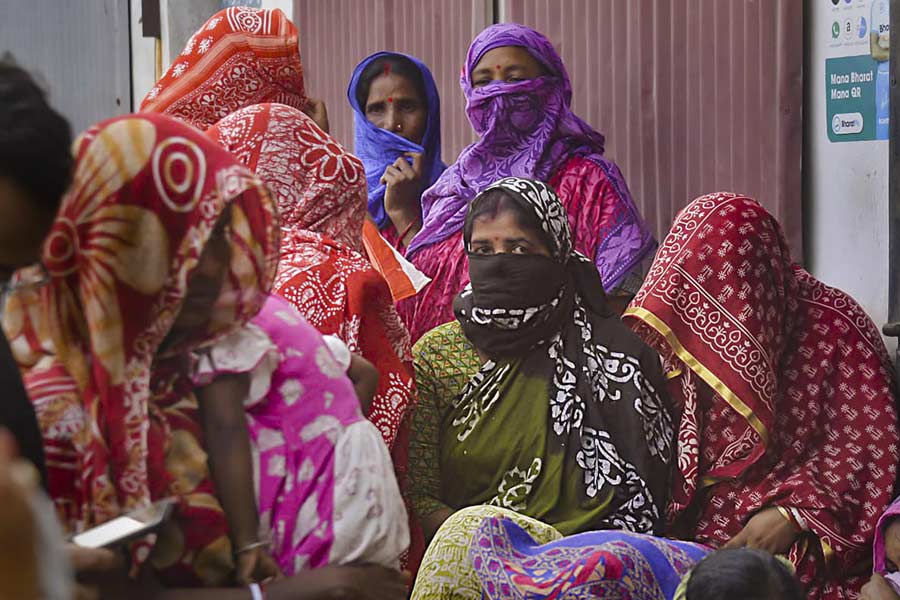The National Commission for Scheduled Tribes has issued notices to the Centre and the West Bengal government, seeking factual and action-taken reports on the issues of child marriage, human trafficking, human-wildlife conflict and corruption plaguing the state's Sundarbans region.
The commission issued the notices last week following a representation from rights activist and Supreme Court lawyer Radhakanta Tripathy.
The tribal population (2,11,927) in the region, comprising primarily the Munda, Santhal, Bhumij and Oraon tribes, remains marginalised despite being the earliest settlers, Tripathy said in his representation to the National Commission for Scheduled Tribes (NCST).
He highlighted that child marriages were prevalent in the Sundarbans, a cluster of low-lying islands in the Bay of Bengal famous for its unique mangrove forests.
It is common for girls to marry at 15-16 years. Around 15 cases of underage marriages are reported annually in the Hasnabad panchayat, Tripathy said, adding that conservative attitudes contribute to the high rate of child marriages.
Human trafficking is a major concern, with West Bengal ranking second in the number of missing women and girls, the activist said.
According to the National Crime Records Bureau (NCRB), 1,56,905 women and 36,606 girls were reported missing in the state in 2019-20.
"Traffickers exploit economic needs, dysfunctional families, romantic relationships, and mental disorders. Lack of education and poor socio-economic conditions in North 24 Parganas villages are major factors," the representation said.
The rights activists said the struggle for survival of indigenous people in the Indian Sundarbans, home to over 100 tigers, is intensified by environmental challenges, leading to human-animal conflicts and hardships for affected families.
He pointed out that illegal construction and environmental violations in Ramsar sites, including the East Kolkata Wetlands and the Sunderbans, have been highlighted in a recent audit report by the Comptroller and Auditor General (CAG).
Tripathy also alleged that the residents of the Sundarbans lack access to essential services such as safe drinking water, healthcare, education and proper infrastructure, violating their right to life and basic amenities.
The implementation of social welfare schemes is inadequate, which is exacerbating the plight of the marginalised population, he added.
The lawyer requested for a detailed investigation into the matter by a team of officials and comprehensive reports from the chief secretary, district collectors and the ministries of environment and rural development.
Except for the headline, this story has not been edited by The Telegraph Online staff and has been published from a syndicated feed.











